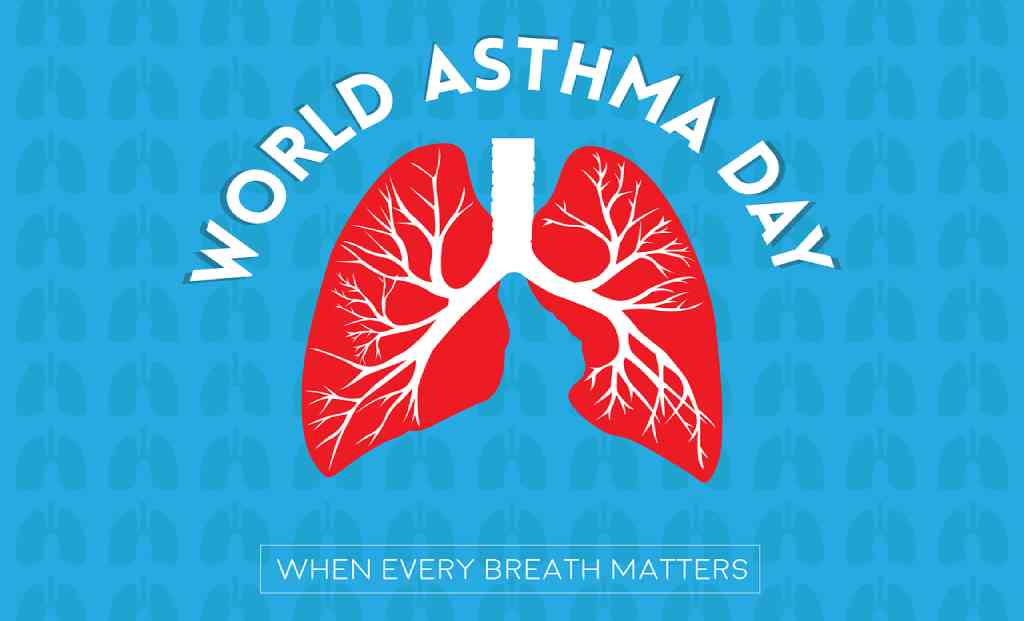Understanding Asthma: Narrowed Airways and Breathlessness
World Asthma Day, observed annually on May 3rd, serves as a global platform to raise awareness about asthma, a chronic condition that causes inflammation and constriction of the airways, leading to symptoms like breathlessness and wheezing. Dr. Arunesh Kumar, HOD & Senior Consultant in Pulmonology at Paras Hospitals, Gurugram, explains that asthma diagnosis is based on symptoms, clinical examination, lung function tests, blood tests, and response to therapy.
Multifactorial Causes and Environmental Triggers
While the exact causes of asthma are complex and multifactorial, environmental factors play a significant role. Psychological conditions such as extreme emotions and excessive physical exertion can trigger asthma symptoms. Certain medications, including non-steroidal anti-inflammatory drugs, can also lead to lung inflammation. Dr. Kumar emphasizes the importance of asthma treatment compliance and having a well-defined treatment plan.
History and Significance of World Asthma Day
Initiated by the Global Initiative for Asthma in 1993, World Asthma Day aims to reduce asthma prevalence and improve patient care. The first celebration took place during the World Asthma Meeting in Spain, garnering participation from 35 countries. Since then, the day has been observed on the first Tuesday of May every year.
Promoting Equal Access to Diagnosis and Treatment
World Asthma Day holds immense significance in bridging gaps in asthma care. It focuses on increasing awareness about the challenges faced by asthma patients and advocating for equitable access to diagnosis and treatment options. The Global Initiative for Asthma collaborates with respiratory communities, patients, and healthcare providers to implement effective asthma care solutions on both local and global levels.
Impact and Challenges of Asthma
Asthma, though relatively low in fatality rate compared to other chronic diseases, can significantly affect a person’s quality of life. Recurrent asthma symptoms, such as breathlessness and wheezing, can lead to sleep disturbances, daytime fatigue, and reduced physical activity. Long-term uncontrolled asthma can also result in deterioration of lung function.
Empowering Patients through Knowledge
World Asthma Day serves as a platform to empower both patients and healthcare providers with knowledge and resources. By understanding the triggers, symptoms, and proper management of asthma, individuals can take proactive steps to control their condition and lead healthier lives. Education about inhaler techniques, lifestyle adjustments, and regular check-ups contributes to improved asthma management.
Preventing Asthma Flare-Ups
Managing asthma involves not only effective medication but also preventive measures. Environmental triggers like allergens, pollutants, and respiratory infections can exacerbate asthma symptoms. By creating a clean indoor environment, avoiding exposure to known triggers, and following a prescribed treatment plan, individuals can minimize the risk of asthma flare-ups and complications.
Innovation and Future of Asthma Care
Advancements in medical technology and research continue to shape the landscape of asthma care. Inhaler devices, personalized treatment plans, and telemedicine have emerged as valuable tools in asthma management. With a focus on innovation, collaboration, and patient-centric care, the medical community strives to enhance the quality of life for asthma patients worldwide.
Uniting for a Breathable Future
World Asthma Day encourages individuals, communities, healthcare providers, and policymakers to unite in the fight against asthma. By promoting awareness, supporting research, and advocating for accessible and affordable treatment options, we can work together to create a world where every individual breathes freely and lives without the limitations of asthma.











